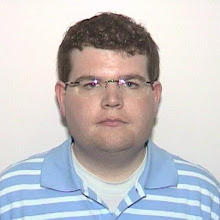This week's articles were very thought provoking, as they forced me to answer some basic questions about what I believe the purpose of MIDI technology is, and what the future of MIDI will mean to the next generation of educators.
MIDI technology is wonderful. I have lived with it for almost 15 years. In that space of time, I have experimented a lot with sequencing - both in my own compositions, and with those of other composers. It's been a great experience, and I have learned an incredible amount from doing it. It's my strong belief that every future music educator should be familiar with this technology, and be using it on a weekly basis. There's really no good reason not too; it benefits the teacher and student alike.
Is it possible to make MIDI technology a work of art? I would say: absolutely. I have worked with professional artists who are in charge of creating very complicated MIDI sequences. It takes a lot of time and practice to have exactly what you want come to life on the computer. Some composers who write strictly for cartoon, video games, or another similar medium will have the MIDI orchestra as their only option, so over time they learn to become excellent sequencers. They learn the tricks of "melding" tracks together, they know what will sound good and what will sound bad. They have spent a great deal of time learning about MIDI orchestration, and the options that are available to them. And the results can be absolutely amazing and mind-blowing. As being one who has studied MIDI sequencing before, I can tell you that knowing how to manipulate different tracks, and knowing the positive aspects and limitations of each midi instrument is extremely similar to the composer knowing each instrument in the symphony orchestra, and knowing the ranges and capabilities of each instrument. A lot of time with the strings, you might have five separate cello tracks for example, each one of them doing different things, (arco, pizz, con lengo, etc...) Many great musicians spend their lives perfecting their craft, and MIDI sequencers are no different. It takes time and practice, but the carefully crafted outcome can be something very special.
Now, having said all of this, I don't think that MIDI will ever replace or take over the symphony orchestra. Even with humanistic elements added to the ever advancing technology, the true musician will always be able to tell the difference between a human and a computer. It really goes back to the argument of artificial intelligence. In the end, MIDI is a tool - even a great one. But I believe it is just that - a tool, a means to an end. This technology is phenomenal to have, but it will never be able to replace human emotion, human expression, and what makes a live concert special. The humanistic element is probably why most people love music to begin with. If you take that away, what are you left with? A great tool? Absolutely. Important to hundreds of professions? Without a doubt. Capable of humanistic expression? No. And that is why MIDI begins and ends in the computer lab, classroom, and home.
Friday, October 2, 2009
Subscribe to:
Post Comments (Atom)

I agree that MIDI will not replace the experience of hearing a symphony orchestra...and I don't think it should. It sounds like your experience with MIDI technology and sequencing will be a useful resource for other colleagues. Perhaps you can use your experience to help other educators through professional development workshops and clinics. I think the most important thing is to think of exciting and attainable lesson plans that teachers can use in everyday classrooms, incorporating this technology. That's what will give educators the drive to learn more about using technology to their advantage.
ReplyDelete